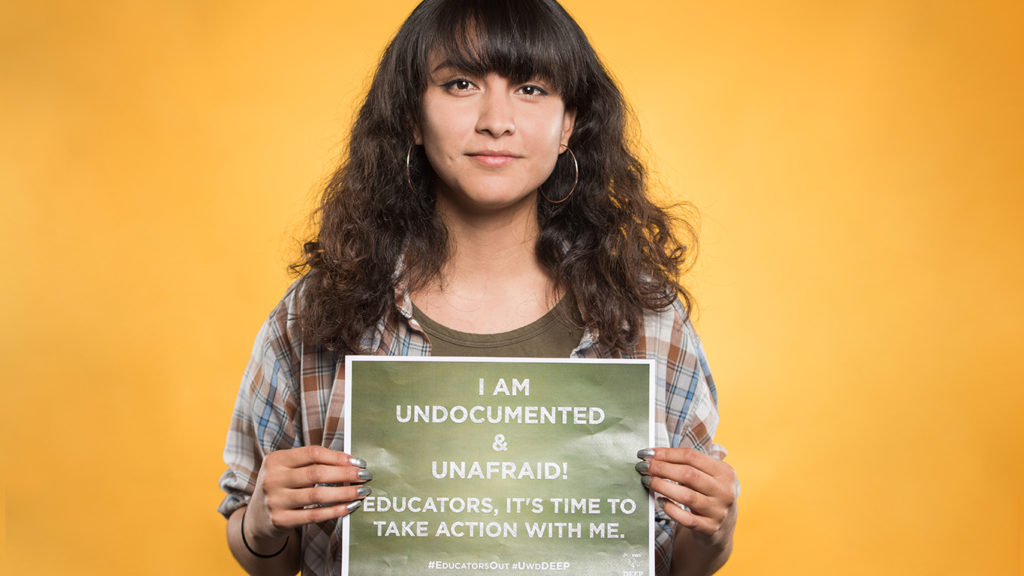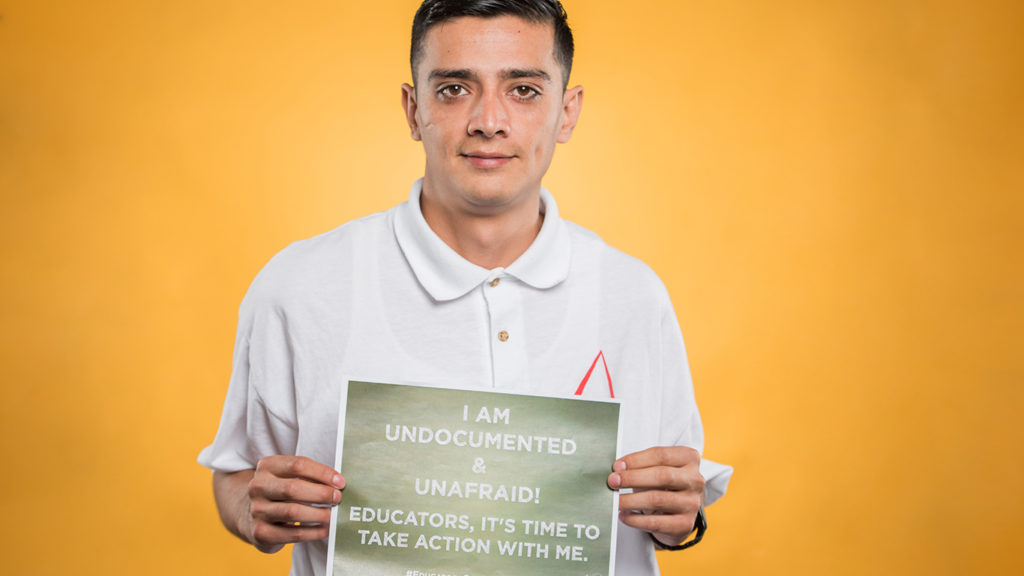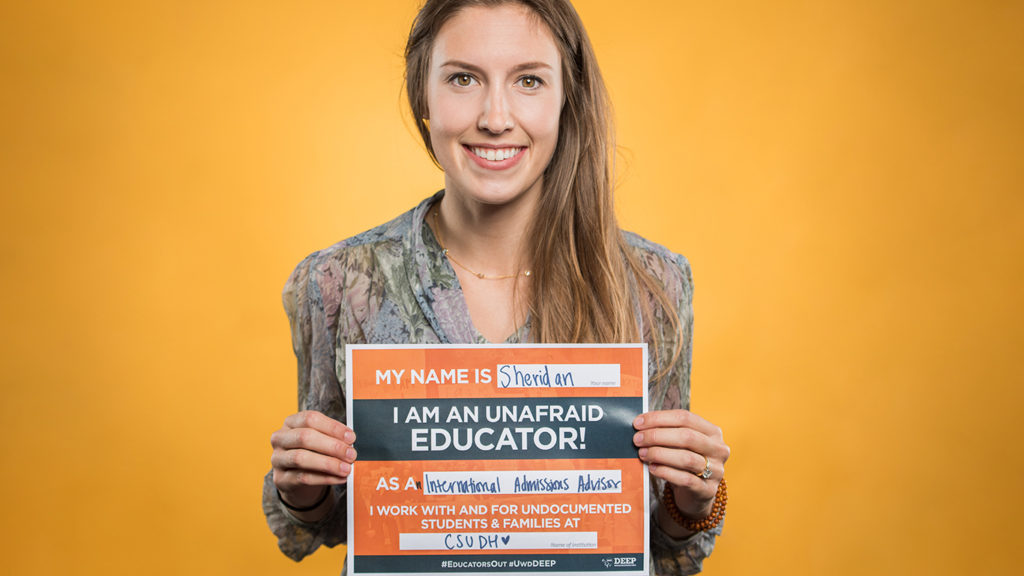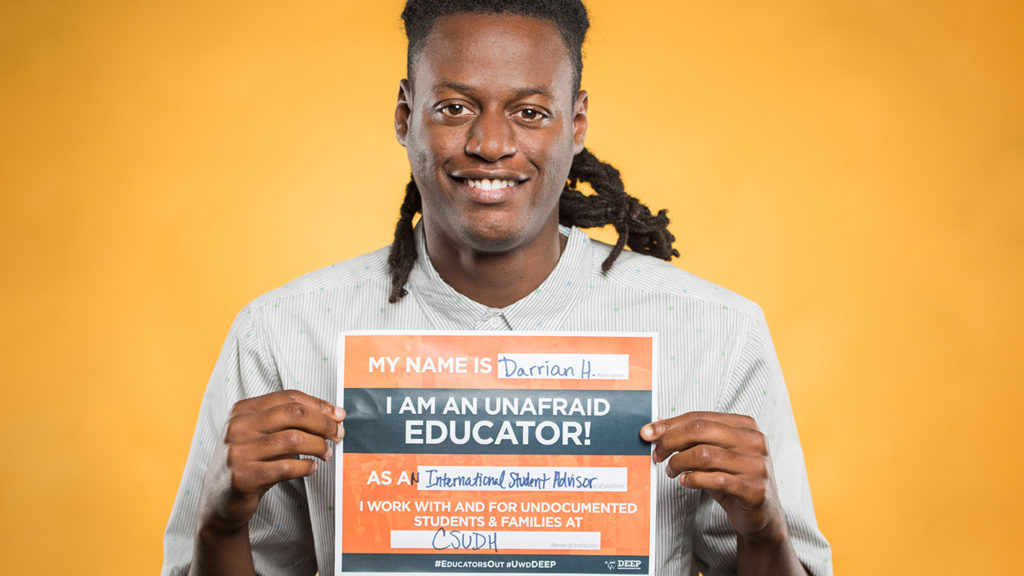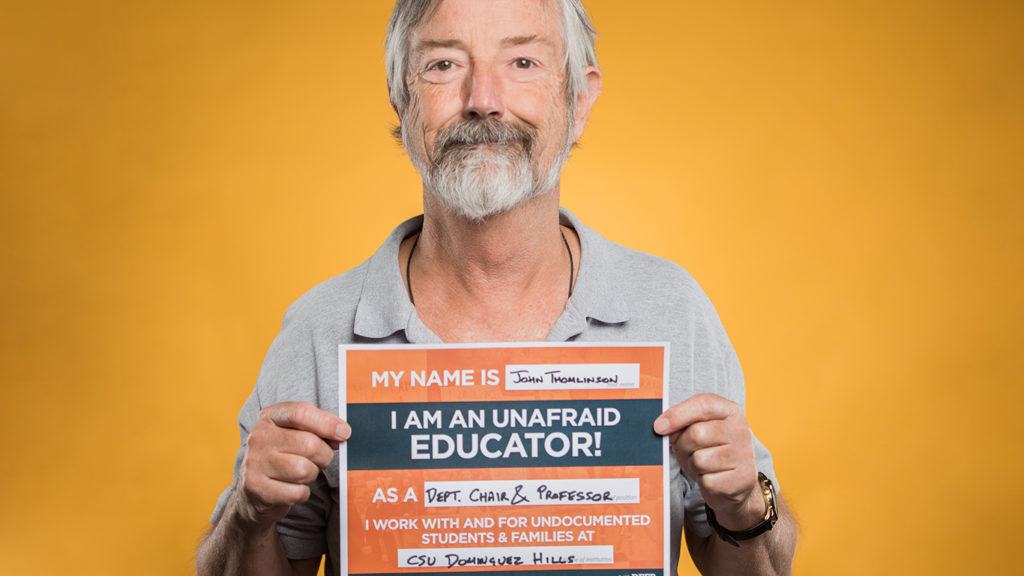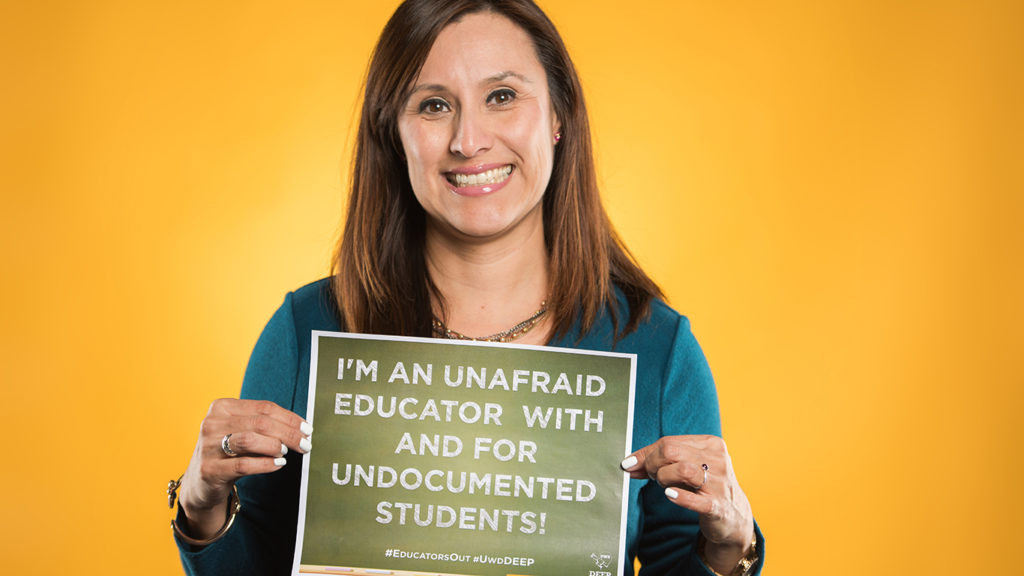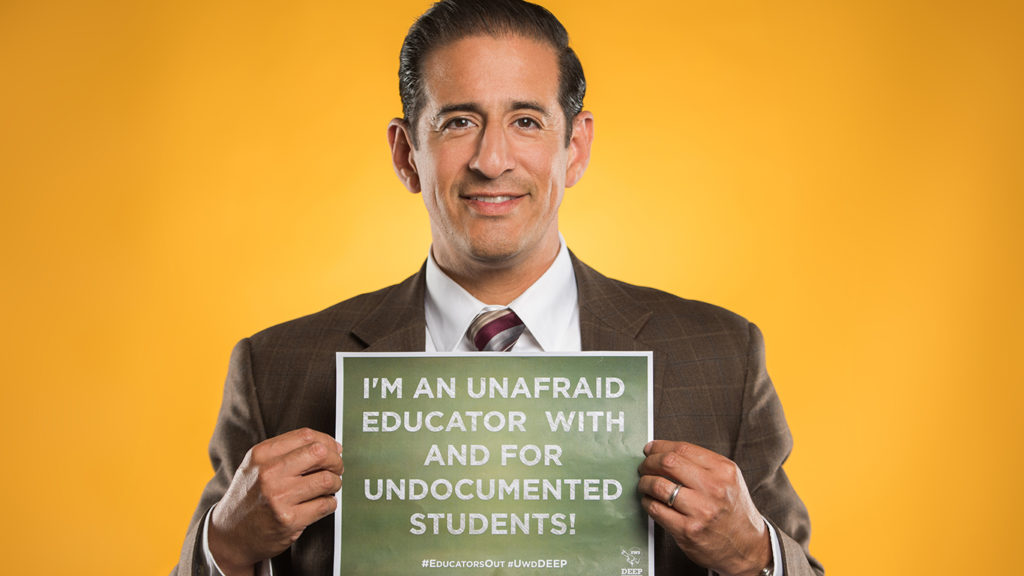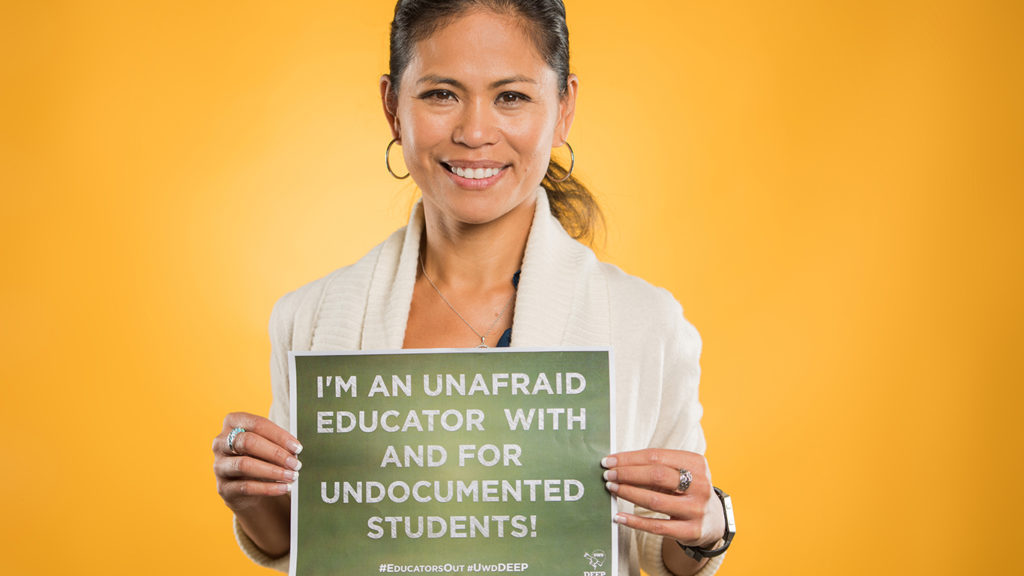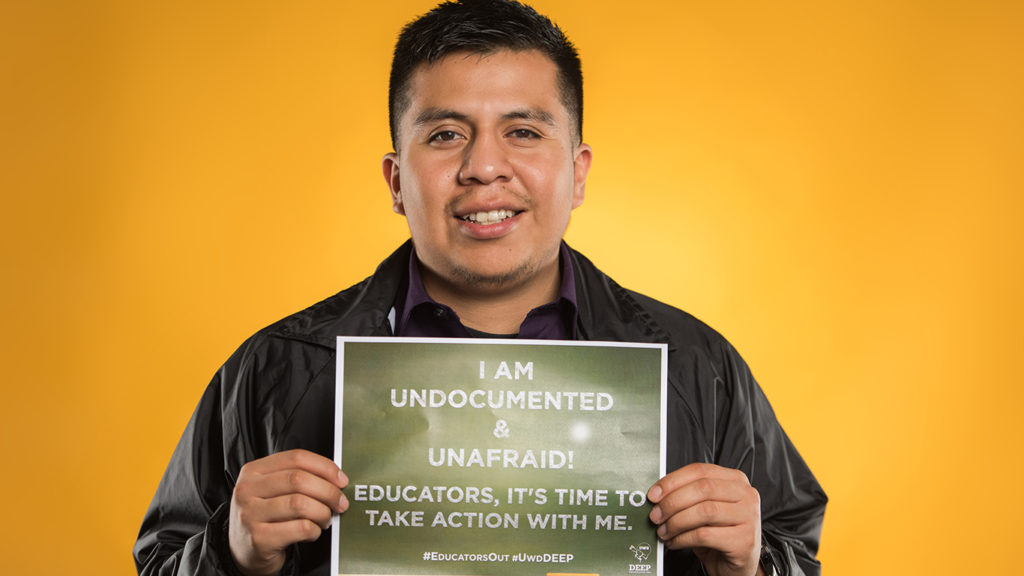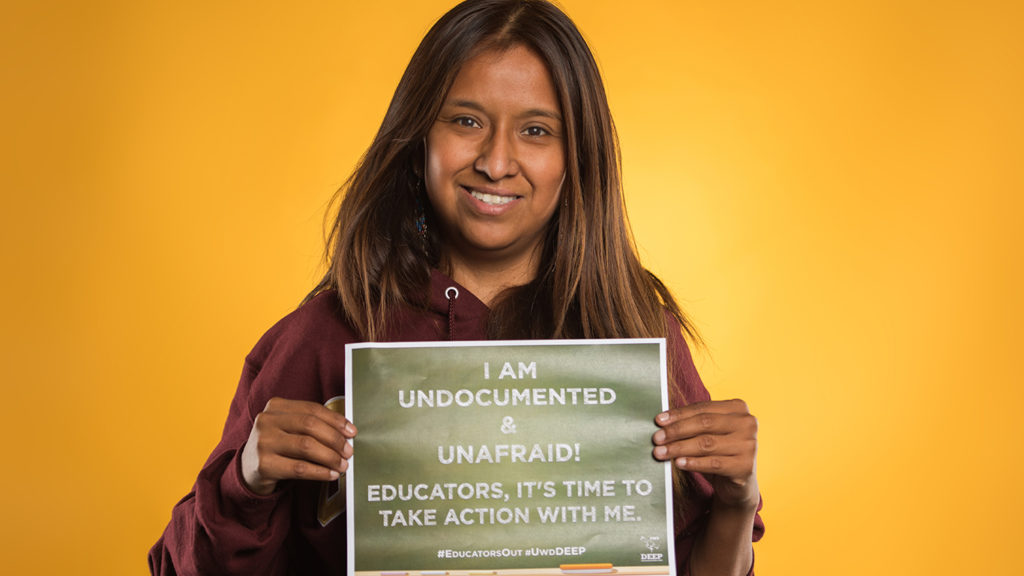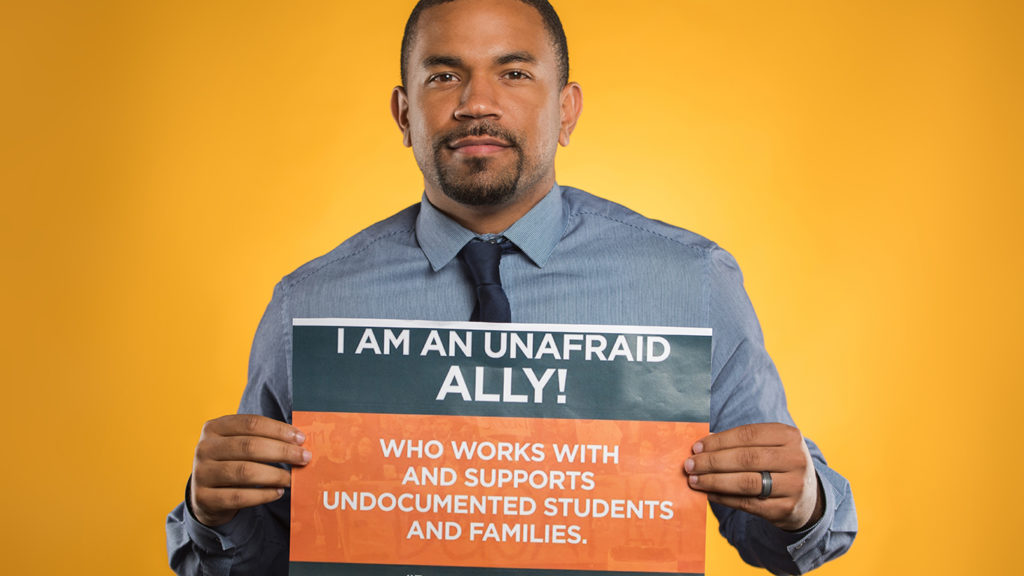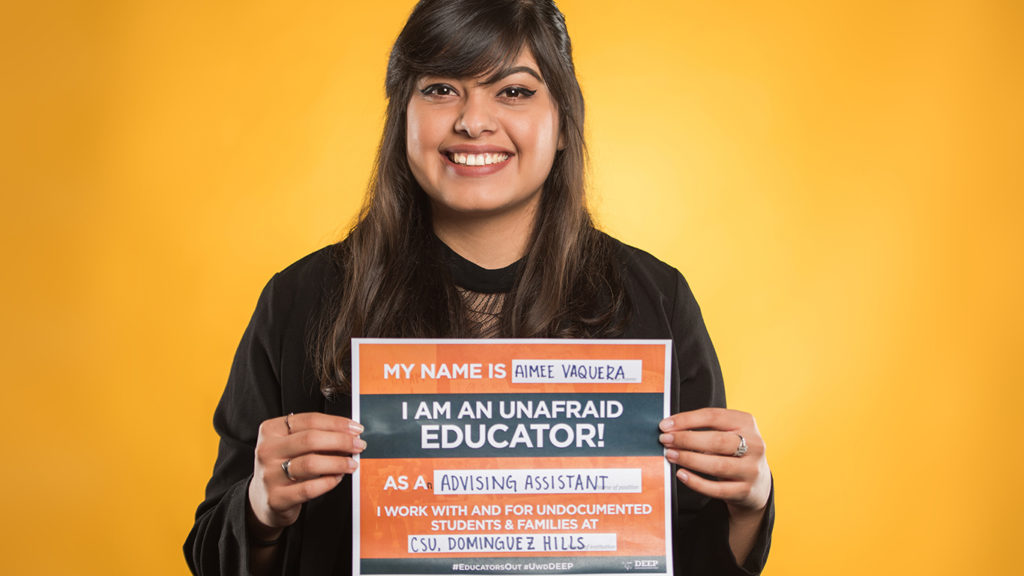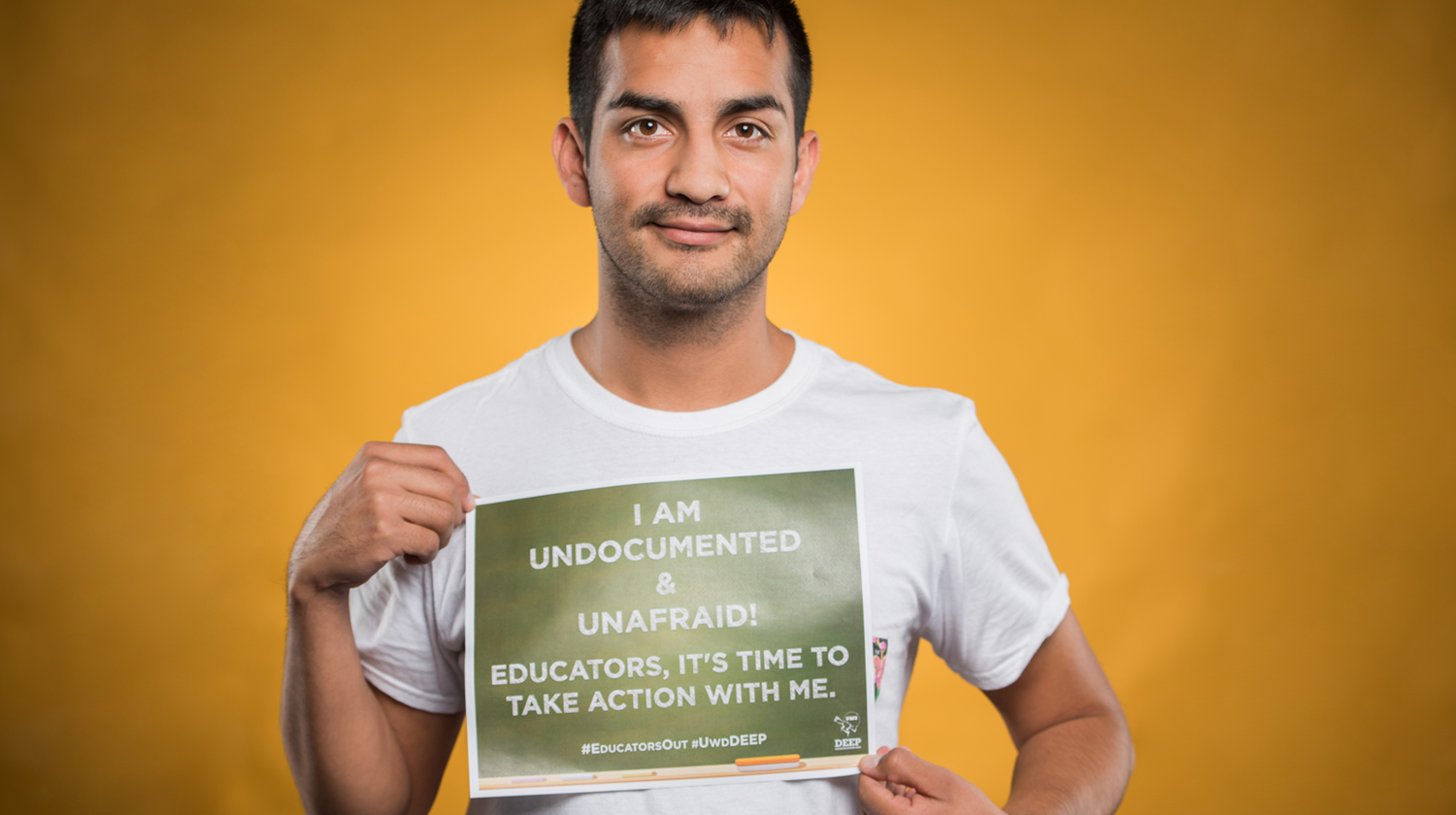 In a time of uncertainty for California State University, Dominguez Hills’ (CSUDH) Deferred Action for Childhood Arrivals (DACA) students, the university’s Undocumented Student Ally Coalition (USAC) is playing a vital role in helping advocate for their success, while partnering with those who are addressing their fears and concerns as the DACA program comes to an end.
In a time of uncertainty for California State University, Dominguez Hills’ (CSUDH) Deferred Action for Childhood Arrivals (DACA) students, the university’s Undocumented Student Ally Coalition (USAC) is playing a vital role in helping advocate for their success, while partnering with those who are addressing their fears and concerns as the DACA program comes to an end.
During its early days in 2014–the year USAC was founded by CSUDH faculty, staff, students, and administrators–the coalition consisted of “a small group of people who wanted to help undocumented students” and came together to have related conversations. They brainstormed such ideas as developing a website for undocumented students, creating a center for them on campus, and other topics, but they were uncertain about how to “actually make things happen,” according to Paz Oliverez, associate vice president for student success at CSUDH.
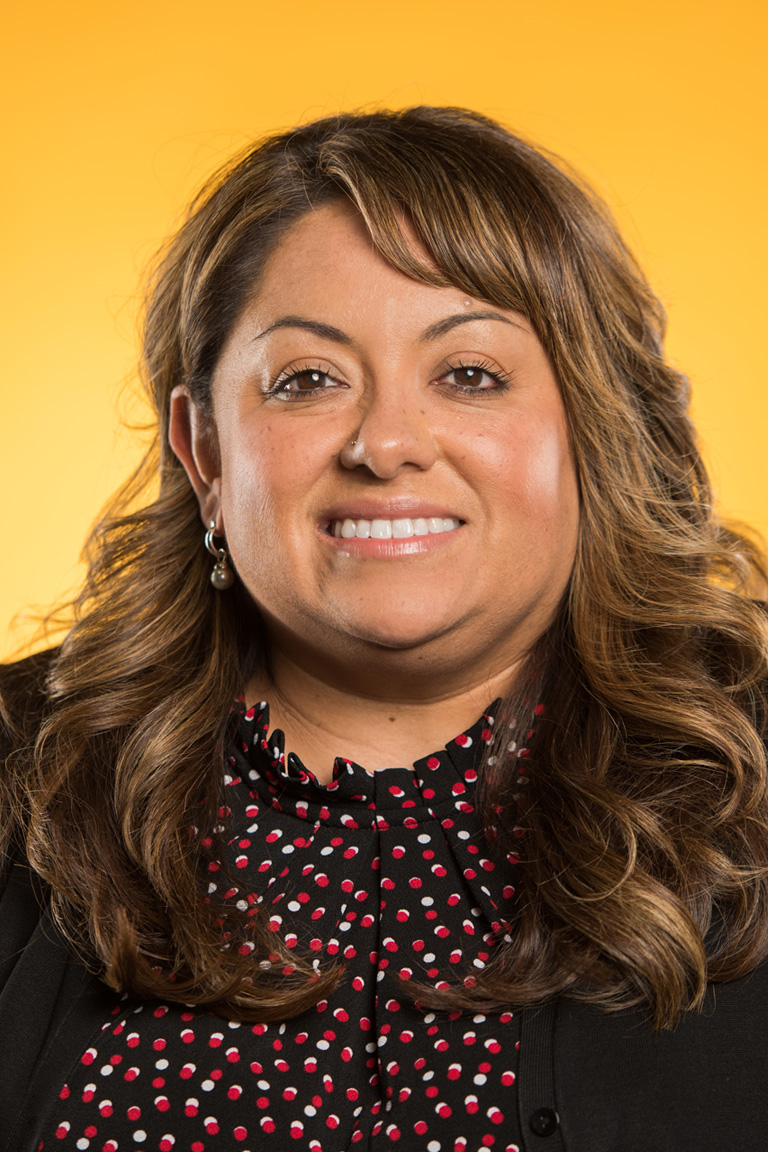
“It wasn’t in anyone’s job description to support undocumented students, but we were all there just because we cared. We began by doing bits and pieces for them whenever we could find the time,” said Oliverez. “But we have grown a great deal in depth since then, and in influence on campus. Now, with the Toro Dreamers Success Center (Dreamers Center) open, we now have very strong support for our DACA students.”
Today, the USAC consists of nearly 50 members whose core function is to help advise the Dreamer Center, which the coalition led in the planning and development of before its opening on Jan. 25, 2017. Working together, the USAC and the center have enabled undocumented CSUDH students to find most of the resources they need on the center’s comprehensive website, attend Dream Center Forums, which are co-sponsored by the USAC, receive assistance with financial aid, apply for scholarships and in-state tuition, seek counseling, and much more.
There are no words to express the abyss between isolation and having one ally.
– G.K. Chesterton, English novelist.
Ally Training
Beyond its advisory role, the USAC advocates for undocumented students on campus by raising awareness about the issues they face the most, and helping undocumented students cope with them, particularly now as many grapple with the end of DACA in early 2018, while managing the daily demands of being college students. This outreach includes recruiting more people to help undocumented students, and equipping them with the right tools to do so through the coalition’s signature program, “Ally Training.”
The Ally Training program is a professional learning opportunity for educators that teaches them about all the challenges and issues that impact DACA students on campus, the history of undocumented student legislation–from the early 1990s, to AB 540 and DACA–resources available for them on campus, best practices, and the variety of ways one can be an ally.
The trainers are often USAC members, and members of the student group E.N.F. Immigrant Student Alliance, and each session includes a panel of undocumented students who provide personal insights and share their experiences in higher education and specifically, with navigating different departments, policies, and procedures at CSUDH.
“When people go through Ally Trainings, we are not expecting them to be experts in all things DACA afterward,” said Oliverez. “What taking an Ally Training really signifies is that you care, that you have invested time to be there and to support students, and that you want to be thoughtful about the kind of support that you provide. If an ally doesn’t feel qualified to answer a student’s particular question or provide some type of support, he or she will refer that student to someone who is qualified, which now means the TDSC staff for the most part.”
The next Ally Training will take place Nov. 17, from 9 a.m. to noon, in the Claudia Hampton Hall, and will conclude the Dreamers Center’s weeklong extension of United We Dream‘s National Educators Coming Out Day, an annual event that takes place each November. The week’s events included, TDSC’s first “UndocuConference,” an entire day dedicated to exploring and sharing best practices and resources in support of undocumented students in higher education, and immigrant communities. They hosted “UndocuTalk” panels, a social potluck mixer, tabling events, an awareness rally co-hosted by the USAC, and a “healing circle” provided in partnership with the university’s Student Health and Psychological Services department.
“I really love how the coalition has evolved. This year we formalized our relationship with E.N.F. and now their vice president for external relations sits in on all of our USAC meetings, providing even more student feedback for us,” said Oliverez. “When USAC students come to our meetings the conversation is far more robust because they are able to bring in perspectives that the rest of us can’t offer because we’re not undocumented students. They are such a valuable piece of the conversation.”
